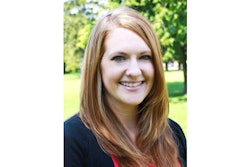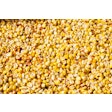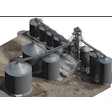During my two-hour drive from Birmingham and Auburn to write this issue's cover story, "Auburn's New Feed Mill Comes to Roost," I tried to mentally prepare my questions for Dr. Don Conner, the head of the university's poultry science department, and Mitchell Pate, director of the poultry research unit, but my mind began to wander. I began to think about how excited the student's must be to kick off the Fall 2012 semester in an immaculate, brand-new, state-of-the-art feed mill. The purchase of school supplies was enough to get me motivated for the new school year, but imagine the message this new facility sends to these students: "The poultry industry needs you and this faciltiy represents its investment in you."
In this month's Manager's Notebook (pg. 36), "How to Recruit Tomorrow's Managers," Drs. Jay Akridge and John Foltz cite that by 2015 there will be 54,400 jobs annually for individuals in the agricultural sciences. (USDA report)
In a time when the majority of graduates in many disciplines are simply hoping to find anything in their chosen field, the kids in Auburn's gradate and undergraduate program know they are in high demand in the Southeast with the erection of the Poultry & Animal Nutrition Center. To date, the department has raised 40% of the cost of the mill with industry and stakeholder donations; it hopes to raise the addition 60% over the next four years. Within the modular feed mill, the industry's suppliers alone donated $750,000-worth of equipment. Impressive numbers by anyone's estimation.
According to Dr. Conner, the demand for skilled employees in the Southeast is high — and rising. Behind Georgia and Arkansas, Alabama ranks third in poultry production; Auburn University is located in the heart of the "Broiler Belt." The thing is, the demand Auburn seeks to meet it's just about "growing the industry's future CEOs and VPs," as it was explained to me, "at the end of the day, it's all about education," the university hope to utilize the mill for continuing education and training programs for individuals already working in the field.
In addition, the university's world-class research laboratories can provide endless opportunities for proprietary poultry-related research to aid in the stregthening the yields of poultry producers at all levels. Dr. Conner and his department urge anyone interested in feed mill stop in for a tour, stressing this isn't Auburn's feed mill, it belongs to the collective industry as they plan for a profitable future.










